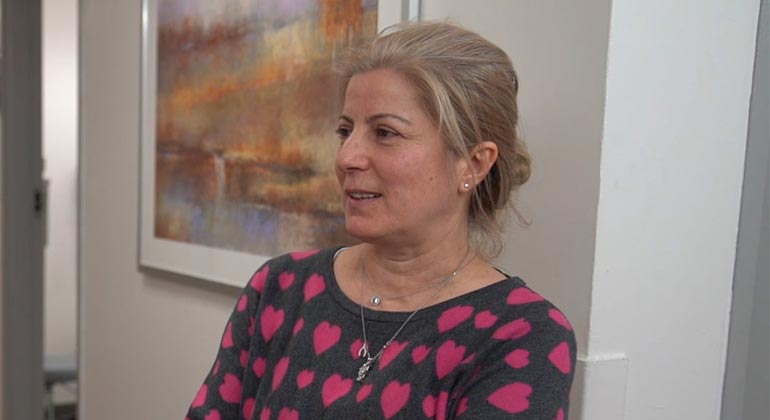
Vein Disease Consultation
At Cross County Cardiology – Mount Sinai, we take the time to get to know our patients. We will ask about your personal medical history, and because vein disease is hereditary, we will discuss your family’s history with varicose veins or other types of vein disease. We will also ask questions about your lifestyle. This will help us identify any vein disease risk factors such as smoking, being overweight or obese, and leading a sedentary life. Naturally, we will also ask about any symptoms you may be experiencing. This is important because even if you have no visible varicose veins yet, vein disease may be present. It might be causing swollen legs and ankles and other complications.
We will perform a physical exam and an in-depth examination of your veins using venous Doppler ultrasound. This is the most advanced form of ultrasound. It allows us to look beneath the surface of your skin to see both the veins themselves and the blood flowing through them. In this way, we can determine whether there are any blockages. This test can also detect signs of venous reflux, which happens when the tiny valves that control blood flow become weak and fail to close properly. Venous reflux allows the blood to flow backward (in a reflux direction) and pool in your veins. It is also the primary cause of varicose veins.
If we discover that you are suffering from vein disease, we will discuss treatment options with you. Together, we will decide which option is best for you. If you do not have vein disease but have high risk factors for it, we will work with you to help prevent it.
The Importance of a Good Diagnosis
Successful vein treatment starts with accurate diagnosis. Once we know what is causing the issue, we can address it. We can start by recommending healthy lifestyle habits that can help. Cross County Cardiology – Mount Sinai has special expertise in diagnosing and treating vein diseases such as chronic venous insufficiency (CVI) and deep vein thrombosis (DVT).
Our office uses the best available diagnostic equipment. Our ultrasound technicians are highly trained and skilled in the most up-to-date techniques. We use only venous Doppler ultrasound because our experience has shown that it provides a more accurate picture of diseased veins that may be hidden deep beneath the surface of the skin. This gives us the information we need to develop the most effective treatment for you.
Risk factors for Vein Disease
A host of factors contribute to the development of varicose veins, spider veins, and other forms of vein disease. Although a doctor may not be able to tell you with complete certainty what caused your vein disease, they can identify risk factors that increase your likelihood of developing it. These risk factors are generally divided into two categories: There are risk factors that you cannot change (non-modifiable), and risk factors that are within your control.
The most important non-modifiable risk factor for vein disease is family history. More than 50 percent of patients with varicose veins have one or more parents who had them. The next most important risk factors are age and gender. You are more likely to develop vein disease if you are over 50 years of age, and females are more likely to develop it, for hormonal reasons. Another risk factor related to gender is pregnancy, which increases a woman’s vein disease risk in two ways. Pregnancy causes hormonal changes, and boosts the overall volume of blood in the body.
Among modifiable risk factors, the most important is being overweight or obese. Carrying excess weight places a strain on the circulatory system. If you know that you already exhibit some of the risk factors discussed above, you should do your best to maintain a healthy weight.
Other factors that increase your risk of vein disease—and that you can control—include:
- Smoking cigarettes
- Lack of exercise, especially sitting too much
- Taking certain medications, such as birth control pills or hormone replacement therapy